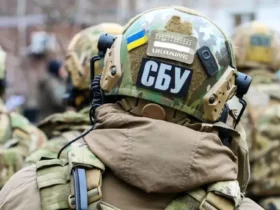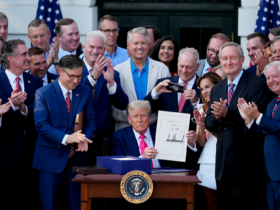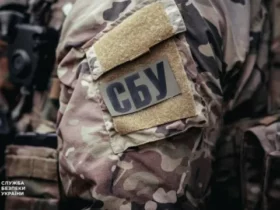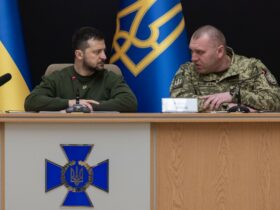An annual security conference was held in Munich from February 14 to 16. This international forum, which takes place every year in the capital of Bavaria, was originally conceived as a joint event between NATO and the conservative Christian Social Union. Today it is more informal, but the agenda and high level list of participants demonstrates that the problems of the Euro-Atlantic West are still in the spotlight there.
1.The Decline of the West
The key word of the organizers’ pre-conference report was “Westlessness.” This can be understood not only as a decrease in the significance of Western countries in international relations, but also in terms of internal problems of the West itself including a ”widespread feeling of uneasiness and restlessness in the face of increasing uncertainty about the enduring purpose of the West.” Interestingly, the report begins with a reference to Oswald Spengler and his conclusion about the deadly disease and the decline of Western civilization. Crucially, even, the West itself is becoming less western, the authors of the report believe.
The organizers of the Munich Conference blame illiberal and populist forces for the decline of the West and talk about the growing influence of Russia, China and Turkey. The thesis about the crisis of the “West” as a project of the European Enlightenment is combined with the assertion that there are many reasons for liberal optimism. However, in fact, they mostly pointed out some of the failures of “authoritarian regimes .”
https://twitter.com/MunSecConf/status/1228938786366685184
Evoking Oswald Spengler, the German organizers of the conference demonstrated that they are opposed to his infamous analysis that the historical cycle of Western “Faustian” Civilization is coming to an end.
This is not the first time that the end of Western hegemony has become the subject of discussion at the Munich Conference. However, since 2017, the conference organizers have not been able to offer any real alternative. This is evidence of a deep crisis in the Western world, including a crisis in understanding international relations and the inability of intellectual elites to reconsider the value foundations of a dying world order.
It is significant that during a speech in Munich , US Secretary of State Mike Pompeo said that in confronting opponents of liberal values, the United States and Europe will certainly be victorious.
“The West is winning! And by that, I don’t just mean just the nations of the geographical ‘West.’ Any nation that adopts the Western model — a respect for individual freedom, free enterprise, and national sovereignty — they’re part of this idea of ‘the West” – declared Pompeo.
The United States is fighting for sovereignty and freedom. We should have confidence in the transatlantic alliance. The free West has a brighter future than illiberal alternatives. #TheWestIsWinning – and we’re doing it together. pic.twitter.com/3sz9PoSNZC
— Secretary Pompeo (@SecPompeo) February 15, 2020
2.Europe: “an appetite for power”
The optimism of Pompeo was sharply discordant with a critical assessment by Europeans regarding relations with the United States. German President Frank-Walter Steinmeier accused the US of selfishness, adding that “the current administration rejects the very concept of the international community,” saying that Trump’s promise to make his country “‘Great again’ AT the Expense of neighbors command and partners.”
French President Emmanuel Macron presented his vision for the future of Europe including greater integration within the EU, while, in his opinion, the future of the European Union depends on Berlin and Paris. At the same time, Macron called for a dialogue with Russia. According to him, Moscow will eventually prefer liberal Europe to China as a partner.
Macron made another important proposal to strengthen defense cooperation in the EU, “for reasons of sovereignty.” 10 days earlier, Macron called for a pan-European dialogue on defense and deterrence regarding nuclear forces and called on other EU countries to participate in the exercises of the French nuclear forces.
EN DIRECT | Discours du Président @EmmanuelMacron sur la stratégie de défense et de dissuasion depuis l’École militaire. https://t.co/PfYQShLHV2
— Élysée (@Elysee) February 7, 2020
Thus, France encroaches on the exclusive right of the United States, which previously positioned itself as the main force ensuring Europe’s security from a nuclear strike.
The intention to increase the EU’s independence came alongside EU top diplomat Josep Borrell’s statement that: “Europe has to develop an appetite for power.”
3.US: all against China
US Secretary of Defense Mark Espert devoted most of his speech at the Munich Security Conference to the Chinese threat.
“America’s concerns about Beijing’s commercial and military expansion should be [Europe’s] concerns as well”, Esper said.
According to Esper, China exerts economic and political pressure on the countries of the Indo-Pacific region and Europe. In particular, according to him, European security is threatened by the “One belt, One Road” project and the fact that 5G technology is currently being dominated by Chinese company Huawei.
Esper called on “all freedom loving countries” to support US efforts to acquire hypersonic weapons and develop space-based military technology. According to Esper, Washington hopes that “China will behave like a normal country that adheres to the international rules and order.”
This is naturally a West-centric world order. Thus, from the point of view of the US, only a country that obeys its norms and rules is a normal country.
It is important that the worst enemy of President Donald Trump, speaker of the House of Representatives of the United States of America Nancy Pelosi, also spoke at the Munich Conference from an anti-Chinese position.
This is further confirmation that the confrontation between the United States and China is paradigmatic and that Washington’s struggle with Beijing will not stop even if the Democratic Party comes to power in the United States.
4.China: “a shared future for mankind”
Chinese State Councilor and Foreign Minister Wang Yi also spoke at the Munich Security Conference, saying it had come time to review the division in the West and the East and calling for “a bid to build a community with a future shared by mankind.” The Chinese representative said that a multilateral approach was needed that avoided unilateral action. Moreover, according to him, the growing influence of China in the world does not mean that the PRC will begin to copy the hegemonic practices of the Western powers.
“China’s national conditions were what decided that the country could not copy the Western pattern, and China’s cultural genes do not allow the country to follow an old way of seeking hegemony as major powers in history have,” Wang stressed.
In contrast to the position of the Western powers, each of which showed that it was only concerned with its own interests, Wang Yi emphasized that China adheres to the principle of “win-win” relations with other countries.
Thus, China offers an alternative to the current crisis in the world order , while the Euro-Atlantic community is split.
"This sudden outbreak reminds us once again that we live in a time when traditional and non-traditional security issues are intertwined, when local issues easily go global." – Wang Yi, Chinese State Councilor and Foreign Affairs Minister, on #coronavirus. #COVID19 @MFA_China pic.twitter.com/8vI3PkSTIr
— Munich Security Conference (@MunSecConf) February 15, 2020
5.Sideline talks
The Munich Security Conference provided an opportunity for world leaders and heads of diplomatic missions to negotiate on key issues. At that time, negotiations took place between the foreign ministers of Turkey and Russia: Mevlut Cavusoglu and Sergey Lavrov.
They discussed the situationin the Middle East and ways to resolve the crisis in Syria within the framework of the Russian-Turkish memorandum of understanding in Sochi reached earlier. Considering that the attention of the whole world is now focused precisely on the Idlib problem, these negotiations are some of the most important that took place in Munich.
The Turkish Foreign Minister also spoke with his colleagues from Finland, the Netherlands, China, Spain, France and Iran, as well as US Ambassador to the UN Kelly Craft and the Prime Minister of the Kurdish Autonomy in Iraq, Masoud Barzani.
On Sunday, February 16, a conference on Libya was held in Munich with the participation of the foreign ministers of Germany, Russia, Turkey, France and Italy. However, the meeting did not bring about any real results, and the organizers had to admit that the embargo against Libya was being violated. The multilateral format of the Libya talks with the participation of European countries continues to demonstrate that it is not able to produce tangible results.
#Münih Güvenlik Konferansı'nda zamanı verimli değerlendirdik. #AntalyaDiplomasiForumu'nda görüşmek üzere!
Used time efficiently at @MunSecConf. See you all in #AntalyaDiplomacyForum! @AntalyaDFhttps://t.co/RjzJuN7J75 pic.twitter.com/JLQpwuZiTw
— Mevlüt Çavuşoğlu (@MevlutCavusoglu) February 16, 2020
Conclusion:
Statements made during the Munich Security Conference have demonstrated a lack of unity among the Euro-Atlantic countries. The EU is trying to become more independent from the United States while the US wants to impose its logic of confrontation with China on the EU. At the same time, not everyone in the EU agrees with Macron’s ambitious plans.
In addition to these divisions, the West itself is still split between realists and liberals. Populism has brought into question the very meaning of the liberal project, but the Western elites do not want to hear this criticism. They are ignoring the movement of the world towards multipolarity, preferring silence or confrontation
Against this background, the position of China is being strengthened, which offers an essentially different model based on respect for the national interests and values of other countries and regions, and values multipolarity. Obviously, the conference only showed that other platforms for discussion of international security are needed where the organizers are not dominated by Eurocentrism, for example, in the BRICS format, or alongside Turkey and Iran.

















Leave a Reply